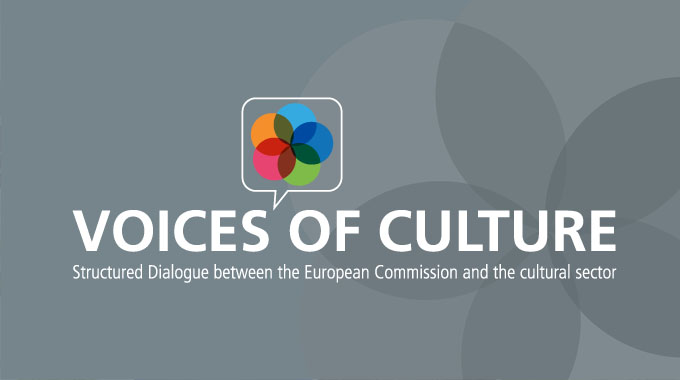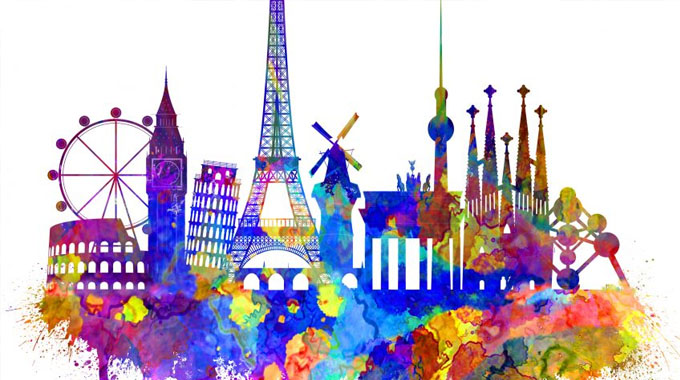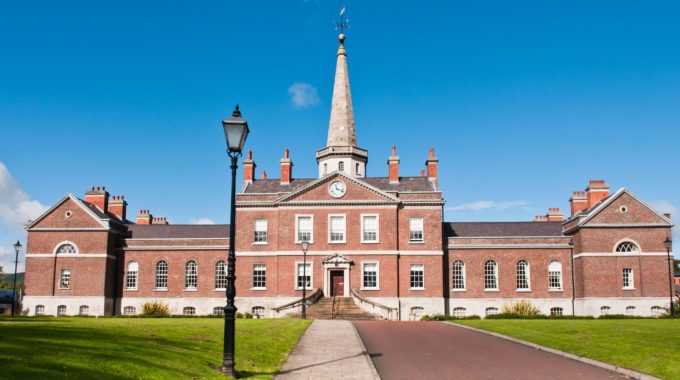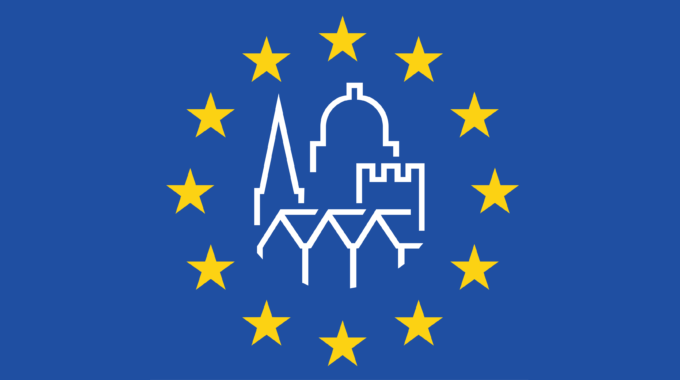In order to restore and inspire the people on a global scale about the arts…

Exploring The Theme: Voices Of Culture And Heritage
 The Voices of Culture and Heritage was launched under structured dialogue of European Year of Cultural Heritage in 2018 for providing discussions between the civil society of European Union and the active stakeholders of European cultural heritage. This allowed information exchange on activities and ideas planned during European Year Of Cultural Heritage, thereby strengthening advocacy capacity within cultural sector for policy debates on European culture and encouraging smooth functioning in collaborative way. Let’s have a look at the themes of Voices of Culture and Heritage –
The Voices of Culture and Heritage was launched under structured dialogue of European Year of Cultural Heritage in 2018 for providing discussions between the civil society of European Union and the active stakeholders of European cultural heritage. This allowed information exchange on activities and ideas planned during European Year Of Cultural Heritage, thereby strengthening advocacy capacity within cultural sector for policy debates on European culture and encouraging smooth functioning in collaborative way. Let’s have a look at the themes of Voices of Culture and Heritage –
Social Inclusion: Partnering With Other Sectors
In Council Work Plan for Culture in 2015-18, the culture ministers of EU in collaboration with member states created three mandates under Open Method of Coordination. The topic was fostering contribution of European culture to society and how public policies can support and encourage cultural institutions for working in partnerships with various sectors. Application selection process was dependent on conditions like thematic expertise, geographical origin, gender balance and sectoral balance. The report of Brainstorming Session with 35 organizations considers partnership qualities, policy, research and development.
Skills, Training & Knowledge Transfer In Cultural Heritage

Addressing the risk of man-made or natural harms on European heritage sector, low participation in cultural activities, online accessibility and digitization of the cultural contents which transforms value chains, the topic was selected by European Commission. In 2017, a dialogue and a brainstorming session was organized with focus on issues like limitation of emerging and traditional heritage professions, challenges in transmission of the traditional knowledge, the required trainings and skills for emerging professions, professionalization of sectors and requirement in capacity building for heritage and professionals.
The Inclusion Of Refugees & Migrants Through Culture

Debated by the EU member states’ culture ministers in 2015, the inclusion of refugees and migrants through culture was addressed and thereby, it was agreed that the migrants and refugees would be provided their immediate needs and they will be integrated to socio-economic background through arts and culture. Member state experts’ group was created to promote intercultural dialogue and cultural diversity. In 2016, dialogue meetings and brainstorming sessions in Brussels were organized to address the questions such as five strongest arguments to be made by the civil society, using culture for promoting integration of refugees and migrants etc.
Intercultural Dialogue Culture In Shared Public Spaces
 According to Work Plan for Culture of 2015-18, Council of EU keeps on prioritizing European contribution to intercultural dialogue as a follow-up to European Agenda for Culture (2007), European Year of Intercultural Dialogue (2008) and Role of Public Arts and Cultural Institutions (2014). The report included some good practices towards heritage sites like acting locally, focusing on efforts to reach out to wider audience, programming quality art for everyone etc. in the 2016 Brainstorming Session in Barcelona, intercultural dialogue was promoted along with bringing different communities together with culture practice.
According to Work Plan for Culture of 2015-18, Council of EU keeps on prioritizing European contribution to intercultural dialogue as a follow-up to European Agenda for Culture (2007), European Year of Intercultural Dialogue (2008) and Role of Public Arts and Cultural Institutions (2014). The report included some good practices towards heritage sites like acting locally, focusing on efforts to reach out to wider audience, programming quality art for everyone etc. in the 2016 Brainstorming Session in Barcelona, intercultural dialogue was promoted along with bringing different communities together with culture practice.
Developing Entrepreneurial & Innovation Potential Of CCS
 The theme of developing entrepreneurship & innovation potential of CCS states that the CCS have potential for being transformational sectors for cities, regions, economies and societies where creative entrepreneurs, diverse talent base and local hubs can organize cultural activities for sustainable tourism. The concern regarding innovation in stimulating the cultural entrepreneurship and public authorities’ roles are sure to be addressed through discussions. In February 2016 the Brainstorming Session was held in Berlin followed by the Dialogue Meeting in February in Brussels where participants met representatives to exchange ideas of innovation and entrepreneurship.
The theme of developing entrepreneurship & innovation potential of CCS states that the CCS have potential for being transformational sectors for cities, regions, economies and societies where creative entrepreneurs, diverse talent base and local hubs can organize cultural activities for sustainable tourism. The concern regarding innovation in stimulating the cultural entrepreneurship and public authorities’ roles are sure to be addressed through discussions. In February 2016 the Brainstorming Session was held in Berlin followed by the Dialogue Meeting in February in Brussels where participants met representatives to exchange ideas of innovation and entrepreneurship.
Participatory Governance Of Cultural Heritage
In heritage policies, participatory governance is considered to be integral part which will help in conservation of heritage sites as common responsibility, isolated from daily life. With online accessibility and social networking, participatory approach is quite common in EU programs. Learn more about initiatives of EFAH.
To facilitate policies for heritage conservation, stimulation of active citizenship, improvement of accountability and transparency of public bodies, increasing civic participation etc are some initiatives. In 2015, the brainstorming Session was organized in Florence where stakeholders of participatory governance took part.
Audience Development Via Digital Means
In order to prioritize audience development strategies for preservation of cultural institutions, audience are co-created, informed and attracted regardless of status or size, enlarged and diversified while developing interactive and meaningful relationship with audience. Online platforms and digital tools are introduced to promote access to cultural sector with digital means. In June, 2015, Brainstorming Session took place in Amsterdam followed by Dialogue Meeting in Brussels in October.




This Post Has 0 Comments